MINDSET, OPINION / 16 JULY 2023
Confessions of a Recovering Perfectionist: 4 Hard Truths Behind the Pursuit of Perfection
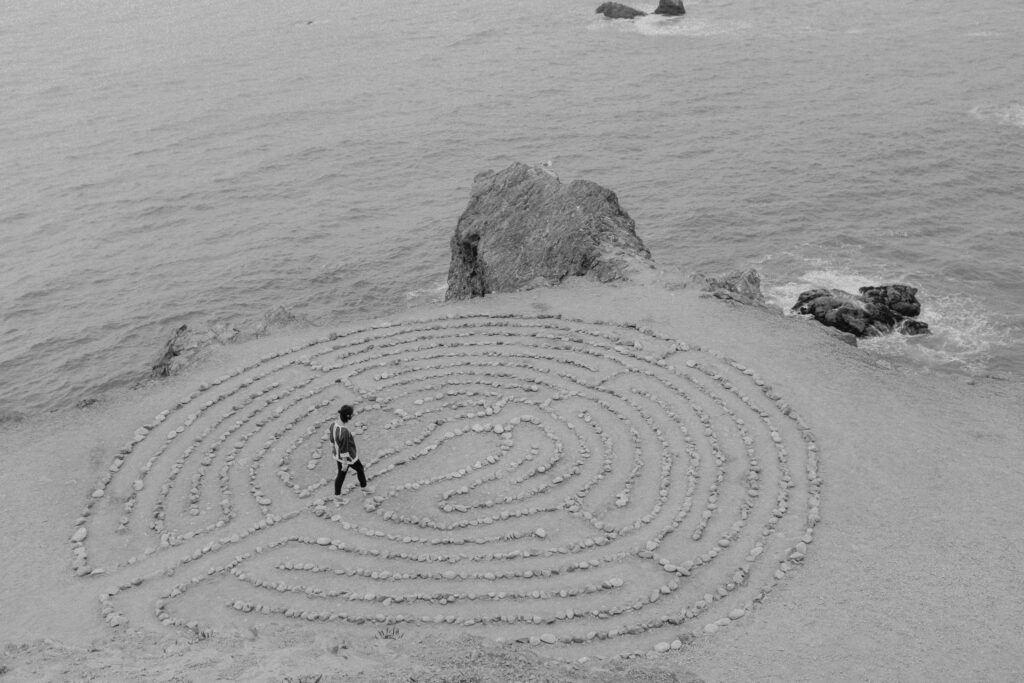
Is striving for perfection holding you back? Fuelled by comparison culture and competitive environments, many of us obsess about making mistakes, letting others down, or trying to achieve the impossible. If left unaddressed, this will not only hinder our performance and careers but also lead us into a state of burnout, which will detract from our overall well-being and happiness.
Today, I share a few insights gained on my journey in the pursuit of perfectionism. Through my experiences, I’ve identified the 4 hard truths that completely shifted my outlook towards setting unattainable expectations for myself. I’ll share with you what I started to notice as I became more aware of these tendencies and what I do differently now since discovering the true cost and most importantly the pressure we sometimes put on ourselves with the belief that perfection = excellence.
Let’s dive in.
The Four Hard Truths Fuelling Your Perfectionism
1. Perfectionism has nothing to do with setting high standards, but everything to do with impossible standards
The almighty all-or-nothing mindset. I don’t think you need to be a perfectionist to have fallen into this trap one way or another.
As a firm believer in quality over quantity it can be easy to fall into this rabbit hole. Striving for quality can often spiral into an innate desire to find or create the perfect “something” – its the perfect day, the perfect week, the perfect holiday, the perfect restaurant, the perfect presentation, or the perfect interview. As soon as there is the smallest sign that it’s not going according to the ‘perfection’ plan, we have this urge to give up and throw it all away.
Have you ever told yourself I am going to eat super healthy this week and then come Friday after a few after-work drinks, and a late-night pizza you throw it all in for the rest of the week, convincing yourself that you’ll start again on Monday? Why do we need Mondays to make a positive change?
The challenge here is identifying the difference between setting high standards and setting impossible standards.
What I do differently now
- I now set myself more realistic expectations. Starting simply by setting clear intentions, which at that point, I ask myself “By saying yes to this, what am I saying no to?” This has helped me ensure that my intentions are ambitious and achievable
- I remind myself that there is no good or bad outcome. When you start labelling something as ‘bad’ you are inviting control, and restriction and ultimately setting yourself to fall short of your intentions
- I celebrate the wins no matter how small and remind myself that every obstacle I face is an opportunity to learn.
A Kind Reminder
By saying “Yes” to less you will deliver high standards but this requires you to have the courage to let go of trying to chase the impossible. What you know today is more than what you knew yesterday.
2. Perfection does not exist
Yes, this iInitially, indecisiveness didn’t seem like a quality that held me back. I would often trust my intuition and decide to take a break and come back to the decision later. But sometimes, when later never came I began to question my rationale. I discovered that my need for perfectionism was causing me to hesitate when I was distracted by shiny objects or worse too many things.
What I started to notice
- When faced with too many options, I can struggle to choose the ‘perfect’ one and often end up choosing nothing because, in fact, the ‘perfect’ one doesn’t exist. A vicious circle.
- Here’s a simple example of what this might have looked like. As an avid reader with a long wish list, I tend to end up with ten books in my arms. However, I eventually narrow down the selection to two books before putting them all back and leaving empty handed.
What I do differently now
- If I start to feel overwhelmed by choice, I go back to my purpose. I ask myself, “What is the outcome I need or want to achieve here?”
- Using my earlier example, my first question to myself is ‘What is my purpose right now? Is it to buy a new book or simply just to browse for inspiration?” If the reason for my visit was to buy a new book, I tell myself that any book is better than no book. I shift my perspective, and tell myself that if I don’t like the book halfway through, I can always go back and get another. The perfect book does not exist. Instantly liberating! BUT, on the contrary, if the purpose of my visit was to just browse for inspiration, then walking away with nothing is exactly what I set myself to achieve – win!
- If I find myself getting deep into the vortex of researching for something I need to do, buy, or complete I put a time limit and set myself a reminder on my phone so that I don’t get carried away
- For important decisions that have more long-term consequences, I get into the habit of making a shortlist. I write the purpose as a heading and note down ‘must haves’ and ‘nice to have’s. I then narrow down my options to a short list of no more than 2-4. I weigh up the pros and cons, align them back with the must/nice to have qualities and give myself a deadline to decide.
- If I am really stuck, and it’s an important decision then I get a second opinion from either a family member, colleague, or friend.
A Kind Reminder
More options fuels the economy. So feeling overwhelmed by choice in search of the perfect thing is more common than you think. Always align back to your purpose and stay true to yourself.
3. Perfectionism is really expensive
Perfection can often manifest in procrastination, making it a very expensive habit from both a time and energy point of view. There is still a big misconception about procrastinating, especially in the workplace. Often people think avoiding certain tasks comes from a place of laziness or lack of desire. But for perfectionists, it is so much more than that.
Those who constantly strive for perfection, are also constantly assessing the risk on their path to achieving perfection. Our incredibly smart minds take over and start to send us warning messages that the path ahead could lead to something a little less than perfect based on past experiences or subconscious data that its been collecting along the way. This means that when our minds predict a higher probability of imperfection it will most likely often means we face a greater chance of procrastination. The more we procrastinate, the more energy, money or time it will cost us.
Personally, I can completely relate to this theory. I started to notice a direct link between approaching challenging tasks with an increased desire to avoid and do something else. What is interesting is that I started to identify patterns on which type of challenging tasks, as this wasn’t true for all challenges.
What I started to notice
- When looking at my daily to-do list, I always prioritised tasks that I loved doing knowing that I did them well with so much attention to detail. Often this would mean neglecting tasks that required tapping into skills that felt uncomfortable.
- I also love to write but when I have the added pressure of wanting to write an interesting article to share with other people, I found myself in the kitchen, doing the dishes, laundry, and anything else I could preoccupy myself with other than writing
What I do differently now
- Bringing more awareness to my distractions. I always feel relieved when I catch myself out mid-procrastination as it allows me the opportunity to stop, take a deep breath, and ask myself ‘why am I avoiding this?’ I then take note of what type of task or challenge it might be, this has helped me identify patterns of resistance.
- I remind myself of the cost that this procrastination has on me, whether it’s time, energy, or a specific result. For example, by not doing this now, it means it will extend into time with friends and family. Do I really want that?
- For the important things, I get myself an accountability buddy or jar to which I add money when I get off track.
- Lastly, just reminding that starting something doesn’t mean it is set in stone forever. Knowing that I can always add, change, remove, or adapt it later relieves a bit of the pressure of wanting it to be perfect.
A Kind Reminder
How much is your procrastination costing you? Try calculating this on paper. You will be amazed at how this shifts your motivation when you realise that by not starting something it could have already cost you 2 years or 50k in potential income. Seeking perfection is a waste of time, energy and resources.
4. Perfection does not make you successful
There is a big misconception that perfectionists are high performers. Whilst this might be true in some cases, I’ve seen this more than often not so. There has been some interesting research made on the way perfectionists and non-perfectionists approach setbacks. Findings from a recent case study showed that those with perfection tendencies were more likely to pull back their effort completely when faced with having to make a second attempt at a task that they initially failed. Their rationale – you can’t fail at something the second time if you don’t attempt it. Whereas the non-perfectionists used the learnings from the first attempt to successfully achieve the task the second time around.
To help cultivate a culture that values attempt over being the best means taking the moment to recognise achievement (no matter how big or small) and to give and receive praise to others and most importantly to yourself.
I personally have definitely fallen into the trap of thinking striving for perfection will make you successful. We are constantly rewarded for hard work. Our smart minds are programmed to tell us, if we keep working harder then we will achieve even more. Workplace culture keeps telling us more is more but in fact, less is more, less is smart. The most influential, powerful, and successful leaders didn’t get there because they are grinding 60-hour weeks. They hustle when it counts, and they are intentional.
I know early on in my career; I was happy to make sacrifices to get ahead. I was chasing promotions, new roles and seizing every opportunity. This is a short to midterm game and not sustainable long term. I started to test the boundaries a little, pulled back my efforts slightly and took note if it made an impact on my performance. It did not.
So why was I burning myself out at 200%? The gap between excellent to impossible wasn’t evident to anyone else other than myself. Had I been wasting all that time doing menial tasks?
Sometimes, when you are so focused on making something perfect, you can have these blinkers on which you might mistake as getting into a state of flow. A great example is putting together a presentation or case study for a potential new employer. I would spend days, weeks trying to make it look, sound, and perfect down to every last detail. I wanted it to be well-researched and look a certain way. After spending 90% of my time leading up to the interview on making this document perfect, I only left myself 10% of the time to work on my presentation skills and practise how I was going to deliver the case study. A big mistake on my part.
What I do differently now
- I align back to my purpose and set myself micro goals to help me get there
- I look for smarter ways to get the same outcome. I find ways to delegate, outsource, or use shortcuts.
- I acknowledge that failure is a possibility and allow myself to sit in that discomfort
- I remind myself that failure is just a word, what it represents is an opportunity for future learning
- If my work has fallen short of my expectations or didn’t deliver the outcome I strived to achieve, I ask for feedback from those involved whether it be a leader, colleague, or potential employer
A Kind Reminder
Spending more time on something does not make it better. Success does not require you to work so hard to the point of burning out. Work smarter, not harder.
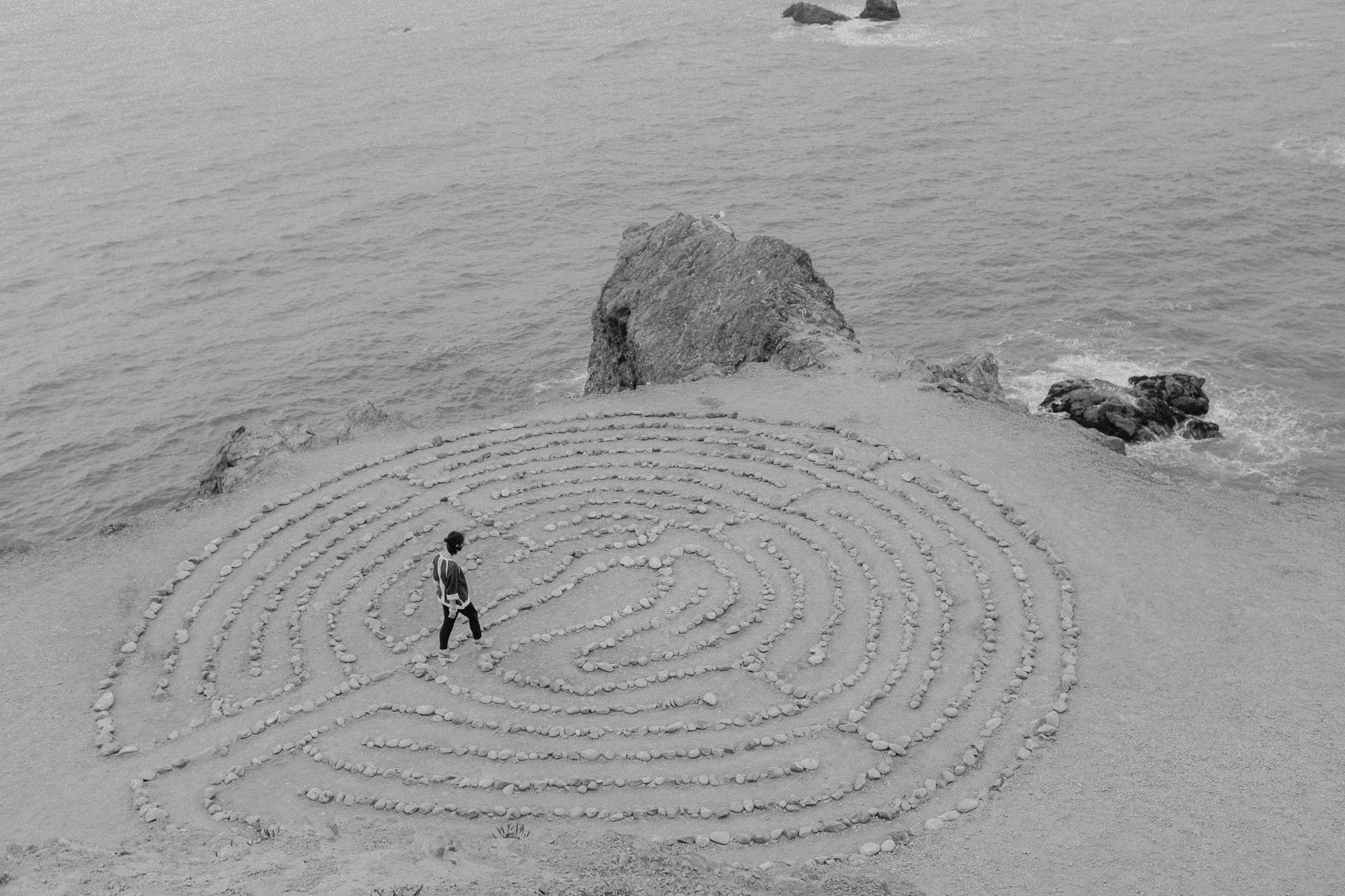
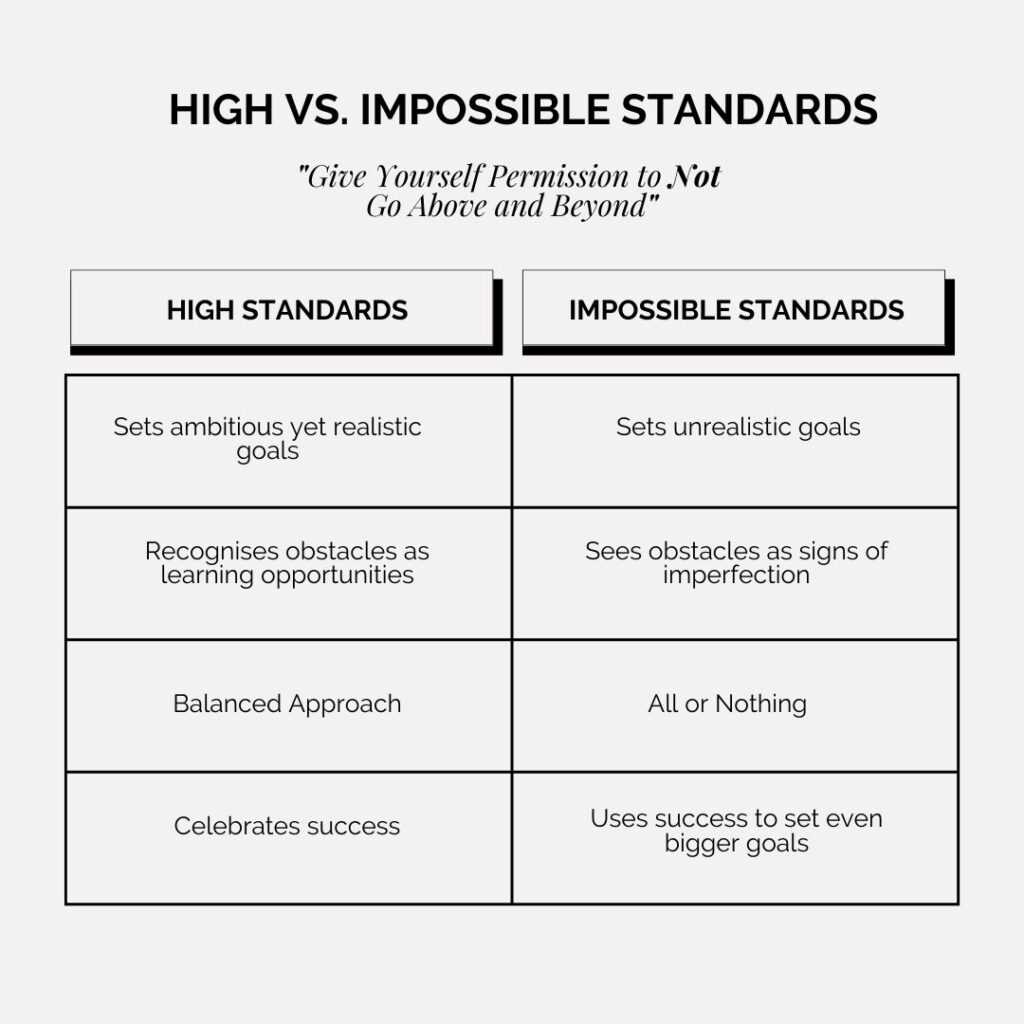
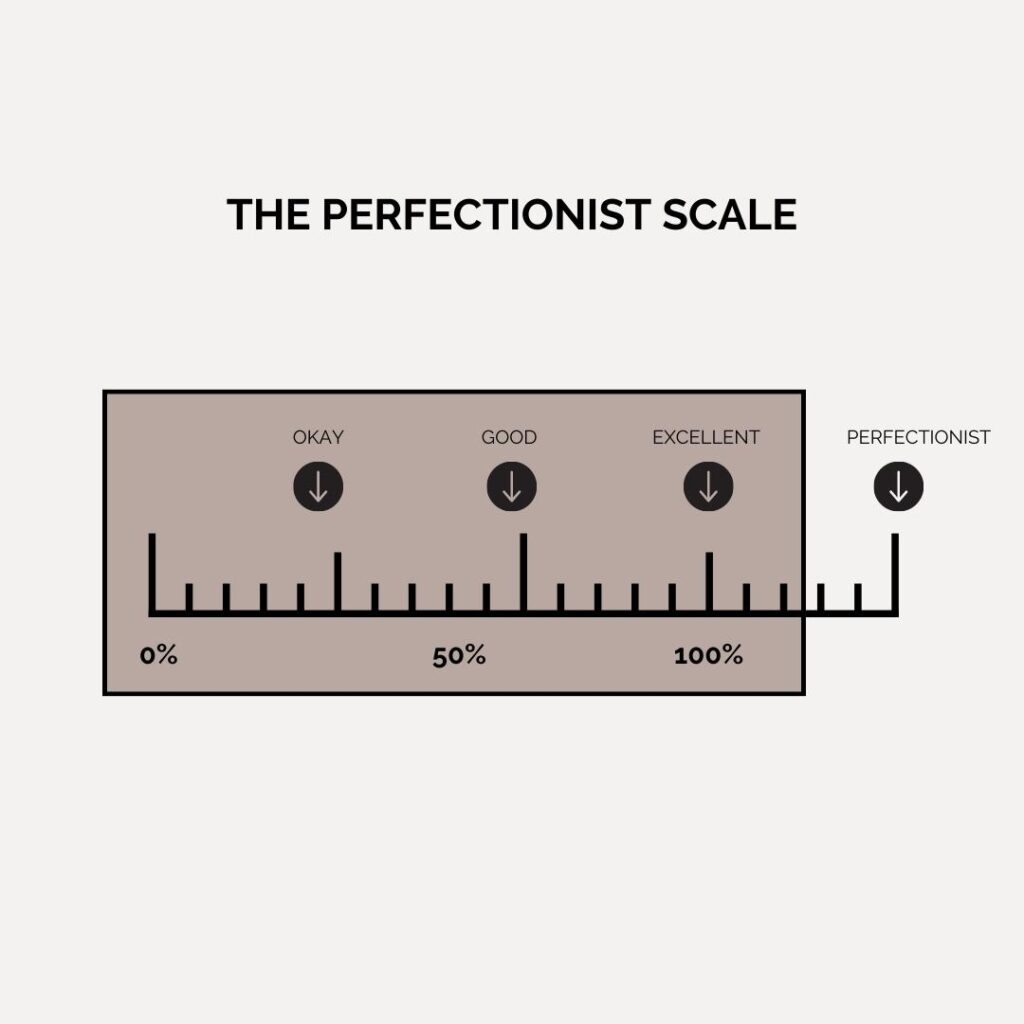
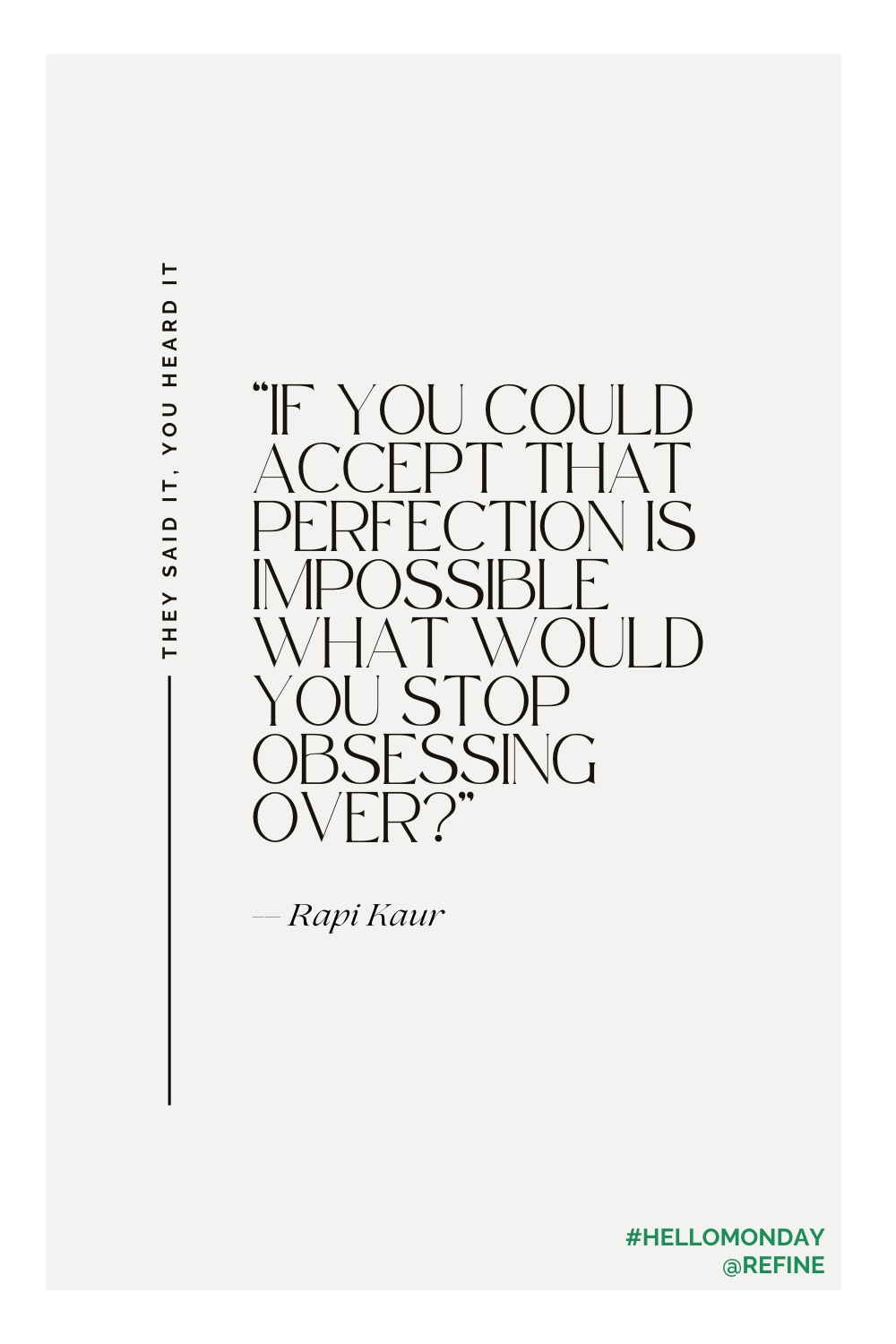

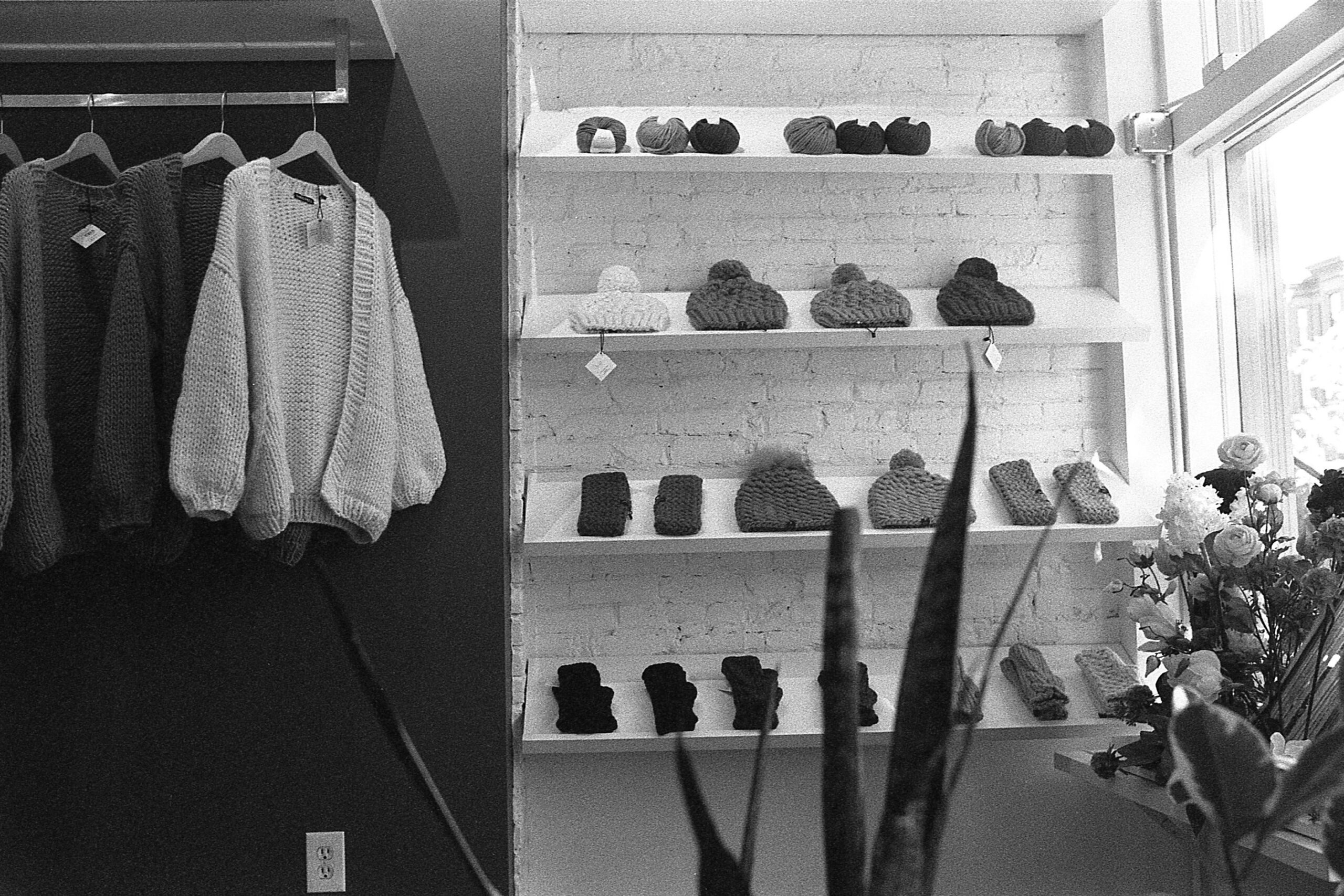



Read the Comments +